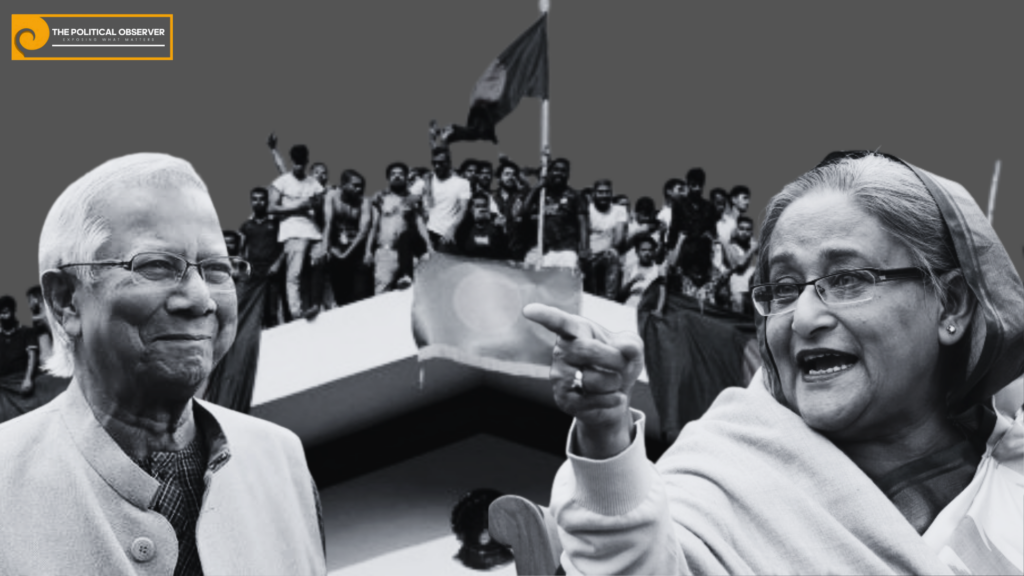Dhaka: In a major political turn in Bangladesh, five senior military officers—two of them brigadiers—have been placed under house arrest in Dhaka. The move comes as part of an ongoing investigation into the violent suppression of student protests that rocked the country last year.
According to official sources, the officers under detention include Brigadier Zakaria Hussain, Brigadier General Imran, Colonel Abdullah Al-Momen (Rapid Action Battalion), Lieutenant Colonel Mohammad Ridwanul Islam (Border Guard Bangladesh), and Major Mohammad Noman Al Faruq (East Bengal Regiment). All five are being held at Dhaka Cantonment.
Linked to Student Protests and Political Upheaval
The officers are accused of authorizing or executing orders to use force against protestors during the nationwide student agitation in mid-2024. The protest, which began as opposition to a job quota system favoring descendants of 1971 war veterans, rapidly escalated into a broader anti-government movement.
The unrest led to the resignation of Prime Minister Sheikh Hasina in August 2024. She later left the country and has since been living in India. The interim government currently in place is headed by Nobel laureate Muhammad Yunus.
Legal Action and Political Repercussions
The detained officers now face charges before Bangladesh’s International Crimes Tribunal. The timing of their detention is significant, coinciding with Army Chief General Waqar Uz Zaman’s official visit to Russia.
Meanwhile, former Prime Minister Hasina is also under legal fire. A court has issued arrest warrants against her, her daughter Saima Wazed Putul, and 17 others in connection with alleged misuse of government land meant for residential use. The government has also revoked Hasina’s Bangladeshi passport.
Hasina’s Message from Exile
Speaking from India earlier this week, Sheikh Hasina addressed Awami League supporters via a private video call. “Allah kept me alive for a reason,” she said, adding that she would return to Bangladesh and seek justice for the “targeting” of her party’s leaders.
Hasina also criticized interim leader Muhammad Yunus, accusing him of exploiting the poor through microfinance schemes while living a life of luxury abroad.
With high-ranking officers now under investigation and a former prime minister in exile, Bangladesh continues to face deep political uncertainty. Observers suggest that the coming weeks—especially after the army chief’s return—will be critical in determining whether the country moves toward stability or deeper confrontation.


